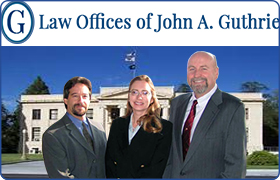Piedmont Adoption Lawyer, California
Sponsored Law Firm
-
 x
x

Click For More Info:
-
Law Offices of John A. Guthrie
239 Main Street Suite H Pleasanton, CA 94566» view mapDivorce & Family Law When You Have Questions, We Have Answers
Our clients are crucial to us. We put every ounce of energy into every case we handle. We are aggressive, but also motivated to resolve litigation amicably.
800-916-9420
Shelley A. Gordon
Alimony & Spousal Support, Child Support, Adoption, Children's Rights
Status: In Good Standing
FREE CONSULTATION
CONTACTSteven G. Rosenberg
Dispute Resolution, Alimony & Spousal Support, Child Support, Adoption
Status: Inactive
FREE CONSULTATION
CONTACTMartin James Elmer
Motor Vehicle, Child Support, Adoption, Corporate
Status: In Good Standing Licensed: 45 Years
David O. Welty
Dispute Resolution, Child Support, Adoption, Contract
Status: In Good Standing Licensed: 21 Years
 John Guthrie Pleasanton, CA
John Guthrie Pleasanton, CA AboutLaw Offices of John A. Guthrie
AboutLaw Offices of John A. Guthrie Practice AreasSpecializations
Practice AreasSpecializations
